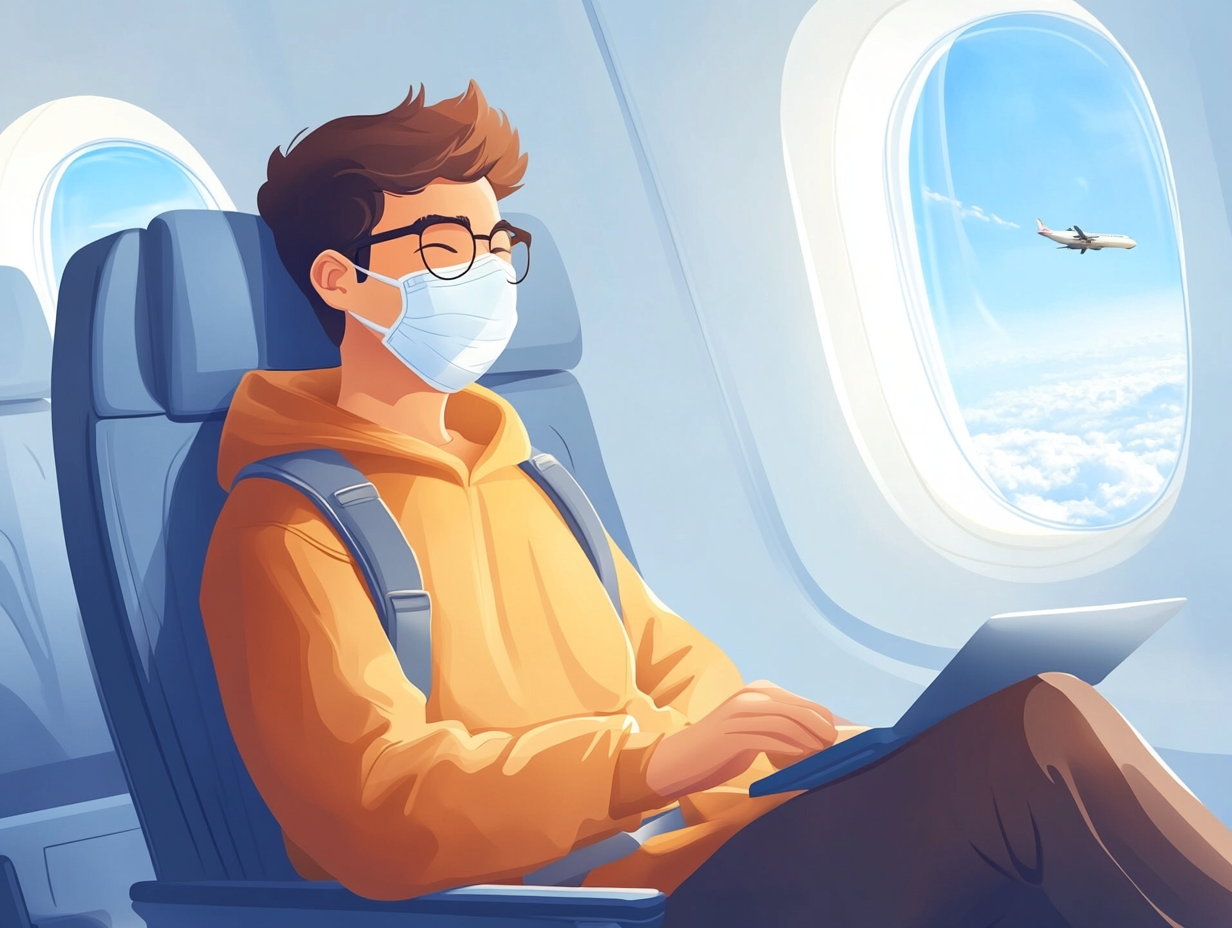Hong Kong-based naturopaths explain how to make your next trip safe and stress-free, from packing for emergencies to getting over jet lag
Those planning to travel during the year-end holiday season should take the necessary steps to ensure their trip is a safe and relaxing one.
These travel tips from Hong Kong-based health experts will help you and your travel companions stay healthy and happy and get the most out of your time away in this busy period.
1. Take care of yourself before you go
Besides keeping your immune system strong with balanced meals, regular exercise and good-quality sleep, avoid consuming alcohol in the weeks leading up to your trip.
“Alcohol is dehydrating and can make you feel irritable, give you brain fog and cause problems from heartburn and migraines to anxiety and skin inflammation,” says Ally van de Pol, a health coach and naturopath at Hong Kong wellness centre Dragon Fitness, Coaching & Healing.
Monica Xu, a naturopath at the Integrated Medicine Institute in Hong Kong, recommends taking multivitamins and minerals with zinc throughout the year to bolster the immune system.
2. Pack health essentials
If you fall ill on holiday, it helps to have herbal remedies at hand in dried form, extracts or supplements. Xu says to take them once you start feeling under the weather.
Echinacea, olive leaf extract and astragalus, for example, may shorten the duration of a cold or flu and reduce the severity of symptoms.
If you are not a fan of herbs, Xu recommends N-acetyl cysteine (NAC), a supplement with anti-inflammatory and antioxidant properties that helps clear congested sinuses and relieve upper respiratory symptoms.
For stomach discomfort caused by spoiled or tainted food, van de Pol says activated charcoal may be effective as it absorbs toxins in the stomach.
Herbs such as barberry (Berberis vulgaris), goldenseal (Hydrastis canadensis) and lobelia, and fennel and garlic, may also help. Irish moss and slippery elm are good for soothing the digestive tract.
Xu says those with chronic health conditions should remember to pack their medications – with enough for a few extra days in case of a delayed return – and learn in advance about the healthcare options at their destination in case of an emergency. Remind any travel companions to do the same.
A survey of 2,000 Americans by Talker Research in August found 18 per cent had forgotten to take their medication on a trip.
The US-based ConsumerMedSafty.org recommends packing medicines in your carry-on luggage, in their original packaging.
Take a list of your medicines along with your doctor’s contact details and those of your pharmacy in case they are lost, confiscated or forgotten and you need to replace them.
The group notes that some medicines go by different names in different countries, and that a product with the same name as the one you need could be a completely different medicine.
Hand sanitiser or sanitising wipes are a must to minimise the spread of bacteria and viruses when travelling in and around busy places.
3. Have a comfortable flight
When it comes to long-haul travel, your sleep will be affected whatever you do, but a few things can help.
Eat only lightly or not at all during flights to minimise stomach upset and bloating, van de Pol says.
She also recommends avoiding alcohol while flying or in transit. A couple of drinks may send you to sleep but you will probably wake up feeling terrible.
“Bring a neck pillow and a change of clothes to sleep in, and clean your teeth, wash your face and moisturise before getting some rest,” she adds.
Wearing socks will keep your feet warm. For those worried about ankle swelling because of fluid build-up, van de Pol says compression socks can help increase circulation.
If you are at risk of developing blood clots in your legs – risk factors include obesity, smoking, age, genetics and use of oral contraceptives or hormone replacement therapy – ask your doctor about using compression socks.
“When you’re not sleeping, get up and walk around, or do squats, calf raises or lunges in the cabin aisle,” van de Pol says.
4. Get your sleep schedule on track
The sleep disruptions that commonly go hand in hand with travel can affect your circadian rhythm and weaken your immune system, according to a 2020 study published in the journal JCI Insight.
A recent study by the University of Surrey in the United Kingdom found that disruptions to our body clock, such as from jet lag, can affect metabolism – how the body converts food and drink into energy. So getting enough good-quality sleep, even on holiday, is key.
For those who have trouble sleeping in a new environment, Xu recommends sleep aids such as magnesium glycinate. Magnesium is an essential nutrient and the glycine component helps calm the nervous system.
Melatonin can also be useful, although Xu says for some it may cause a hangover-like sensation upon waking, or they may wake up too soon after taking it.
“Start with a low dose of 1mg or 2mg to help you get to sleep. You can always add another dose if you wake up in the middle of the night,” she says.
Ashwagandha is an alternative to melatonin. This natural herb helps you fall asleep and stay asleep but will not leave you feeling hungover on waking, Xu says.
Try sleep aids ahead of your trip to see what works, but consult your doctor first; ashwagandha is not recommended if you are pregnant or breastfeeding.
If you would rather not take supplements, create or download a music playlist of slow and relaxing songs to get you in the right head space before bedtime. To get started, consider the Sleep Well playlist from The British Academy of Sound Therapy on Spotify.
5. Eat well, eat safe
“Read the menu before ordering. Pick dishes that include a detailed description of the ingredients and possible allergens,” Xu says.
Fill your plate with unrefined or minimally processed carbohydrate-rich foods such as fruit, starchy vegetables, wholemeal bread and pasta, brown rice and oats, to maintain healthy energy and blood sugar levels. These foods are also high in fibre, which keeps you regular.
To minimise the risk of food-borne illness, Xu recommends eating cooked food instead of raw food. Wipe down eating utensils before using them, as they may harbour bacteria.
If you do get a mild case of the runs, stay calm. Switch to bland foods like rice, boiled potatoes, bananas, plain toast and clear soup for a day or so until it runs its course.
Avoid snacking on cookies and sweets, which may cause your blood sugar to spike and crash, leaving you tired and hungry, Xu adds. Instead, snack on nuts and other nutrient-dense foods.
Stay hydrated. If you are not a habitual water drinker, van de Pol suggests setting an alert on your phone to remind you.
6. Stay active
Do not take a holiday from fitness. Take up activities that you regularly enjoy, such as walking or swimming, or try something you cannot do at home, such as skiing or snowboarding if you are from a warm climate.
You can also do simple exercises in your hotel room, says van de Pol. A suspension trainer and bands are lightweight and easy to pack and use, or you can do squats or lunges and use water bottles as weights.
7. Keep travel stress at bay
Travelling can be unpredictable and not everything always goes as planned. It can also feel overwhelming, especially if you have multiple flights and a packed itinerary. If you are prone to anxiety, Xu recommends prioritising rest, scheduling plenty of down time and being flexible.
It is all about making the best of the trip, she says, so try not to worry about what you cannot control, and deal with setbacks as they come.



